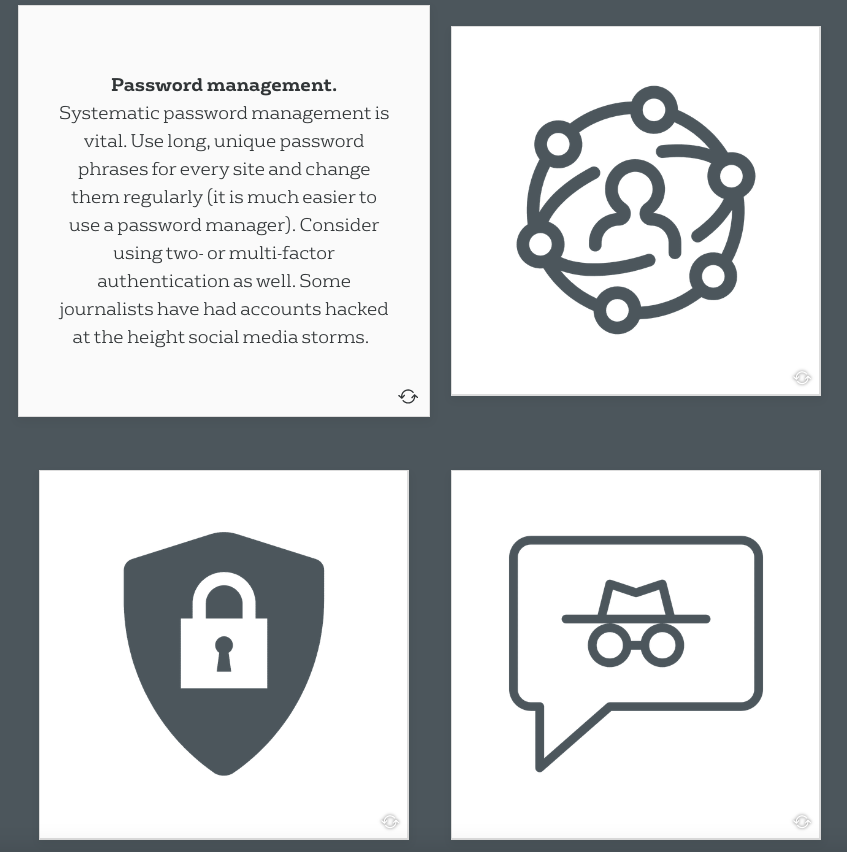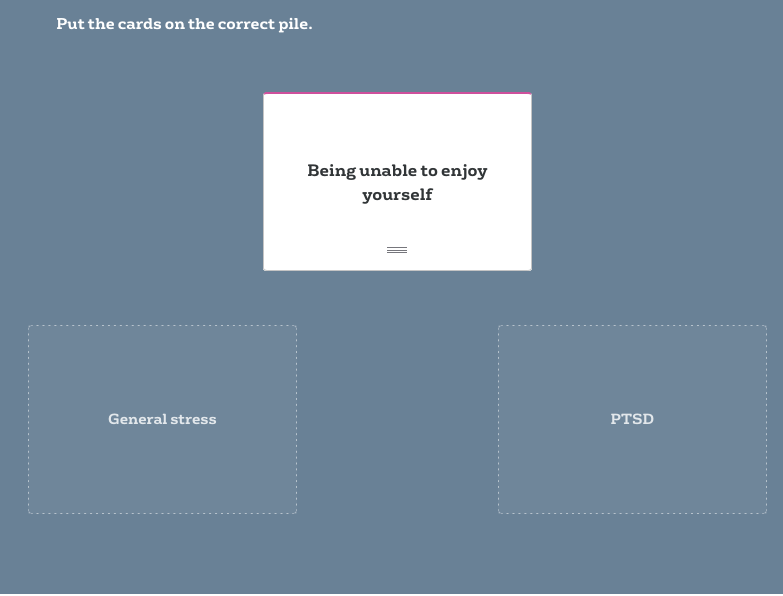
What is it?
A suite of online training modules to help journalists minimise the risks they encounter, from conflict zones to cyber hazards. The interactive online courses have been launched by the National Union of Journalists (NUJ) with support from the Google News Initiative (GNI).
Cost: Free
How is it of use to journalists?
Journalists today face threats both online and in the real world. Many die or are injured every year through their work, and spyware is becoming a more sophisticated way to target reporters' phones and computers. The abuse journalists are exposed to can also take a massive toll on their mental health.
It is therefore important that journalists are well prepared for this environment. Storysmart is a set of four online training modules designed to do exactly this.
There are four online courses on hostile environments, psychological trauma and well-being, cyber risks and dealing with injury. The programme is compatible with phones, tablets and laptops, and should take no more than 20 minutes to run through. You can always revisit the modules later on.
The module on psychological trauma, for example, looks at both how to survive online abuse and how to keep trauma in check.
In the first part, you are tested on definitions of abuse and learn about other lesser-known terms, from astroturfing to phishing. It then offers practical tips on how to protect yourself through a Twitter storm.

Screenshot from Storysmart
There is further advice on how to handle the abuse through asking for help, documenting the abuse, thinking about your actions and considering more serious options.
The second module on trauma focuses on PTSD, from identifying the signs and causes to getting help.

Screenshot from Storysmart
You are tested on the symptoms of PTSD, and there is a self-test section too (not intended to replace a proper doctor consultation or to be taken by under 18s). Scores over 16 indicate you are struggling to cope with stress, scores over 32 are more consistent with serious serious stress issues. In the 'roads to recovery' section, you can find treatment and self-care options.
Once you are finished, you should have clocked up a '100% completion' rating on your course, and you can move on to the next module.
All of the advice comes from hostile environment trainers, cyber-security experts and experienced journalists. There is a raft of further reading and resources provided at the end of the courses.
Free daily newsletter
If you like our news and feature articles, you can sign up to receive our free daily (Mon-Fri) email newsletter (mobile friendly).
Related articles
- Why PressPad closed down, with Olivia Crellin
- Five tips to manage your screen time as a journalist
- Journalists are happy to be disconnecting from platforms, should news organisations be worried?
- Ukrainian journalists are at a breaking point. It is time to make a change
- Six career lessons in war and conflict reporting









